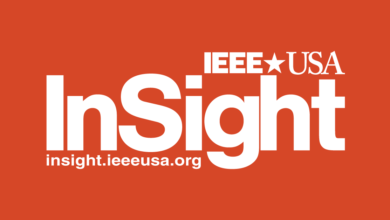
Dr. Kelvin Droegemeier, Director of the Office of Science and Technology Policy (OSTP) within the White House, has launched what could be a significant research reform effort.
The Director’s Joint Committee on Research Environments (JCORE) is an interagency taskforce to improve the process used to fund, oversee and conduct federal research. The Committee consists of leaders of federal agencies and departments that fund research, including:
- France Córdova, Director, National Science Foundation
- Walter Copan, Director, National Institute of Standards and Technology
- Paul Dabber, Undersecretary for Science, Department of Energy
- James, Bridenstein, NASA Administrator
- Mary Miller, Director of Defense Research and Engineering for Research and Technology, Department of Defense
- Deborah Frincke, Director of Research, National Security Agency
- Francis Collins, Director, National Institutes of Health
Language in the American Innovation and Competitiveness Act of 2017 called on the OSTP Director to create an inter-agency taskforce to reduce the administrative burdens associated with conducting federally funded research. JCORE is the response to that law, although Dr. Droegemeier has expanded the taskforce’s mandate to include additional objectives, each of which will be handled by a separate subcommittee. These subcommittees are:
Safe and Inclusive Research Environments, focusing on ways to reduce harassment and other unwanted behaviors from research facilities and conferences. IEEE has taken a strong stand against harassment and discrimination and supports further steps to protect researchers.
Research Integrity and Rigor, tasked with improving the quality of research, and developing ways to detect and prevent research fraud.
Administrative Burdens, the original purpose of JCORE, brings the heads of major federal research departments together to standardize and simplify the administrative rules governing federally funded research.
Protecting Research Assets, which will address security concerns surrounding conducting federal research.
IEEE-USA is especially interested in the Administrative Burdens subcommittee. By some estimates, up to 42% of researchers’ time is consumed complying with oversight regulations governing federal research grants. These requirements can be complicated, confusing and counterintuitive. Worse, rules and requirements vary across federal agencies, so researchers often have to report the same information on different forms and in different ways to different agencies.
For example, each federal research agency has its own audit rules. Researchers whose work is audited must devote huge amounts of time to collecting, organizing and presenting their financial data to pass an audit. But just because one agency clears a researcher does not mean another agency can’t immediately audit them again. In such a case, researchers would have to reproduce the exact data they used on the first audit, but in a completely different format and on completely different forms. The second audit can take almost as much time to complete as the first, even though it is looking at exactly the same things.
The JCORE project should help improve this situation by encouraging federal research agencies to standardize their forms, simplify their requirements and generally reduce the administrative burdens placed on researchers. Oversight is, of course, necessary to ensure that government funds are spent properly, but it should be possible to properly monitor research programs with far less burdensome rules.
IEEE-USA is working with OSTP to help identify and correct unnecessary regulations, as well as provide advice to the other three subcommittees. IEEE members who have suggestions for OSTP should contact IEEE-USA staffer Aline McNaull at a.mcnaull@ieee.org.




